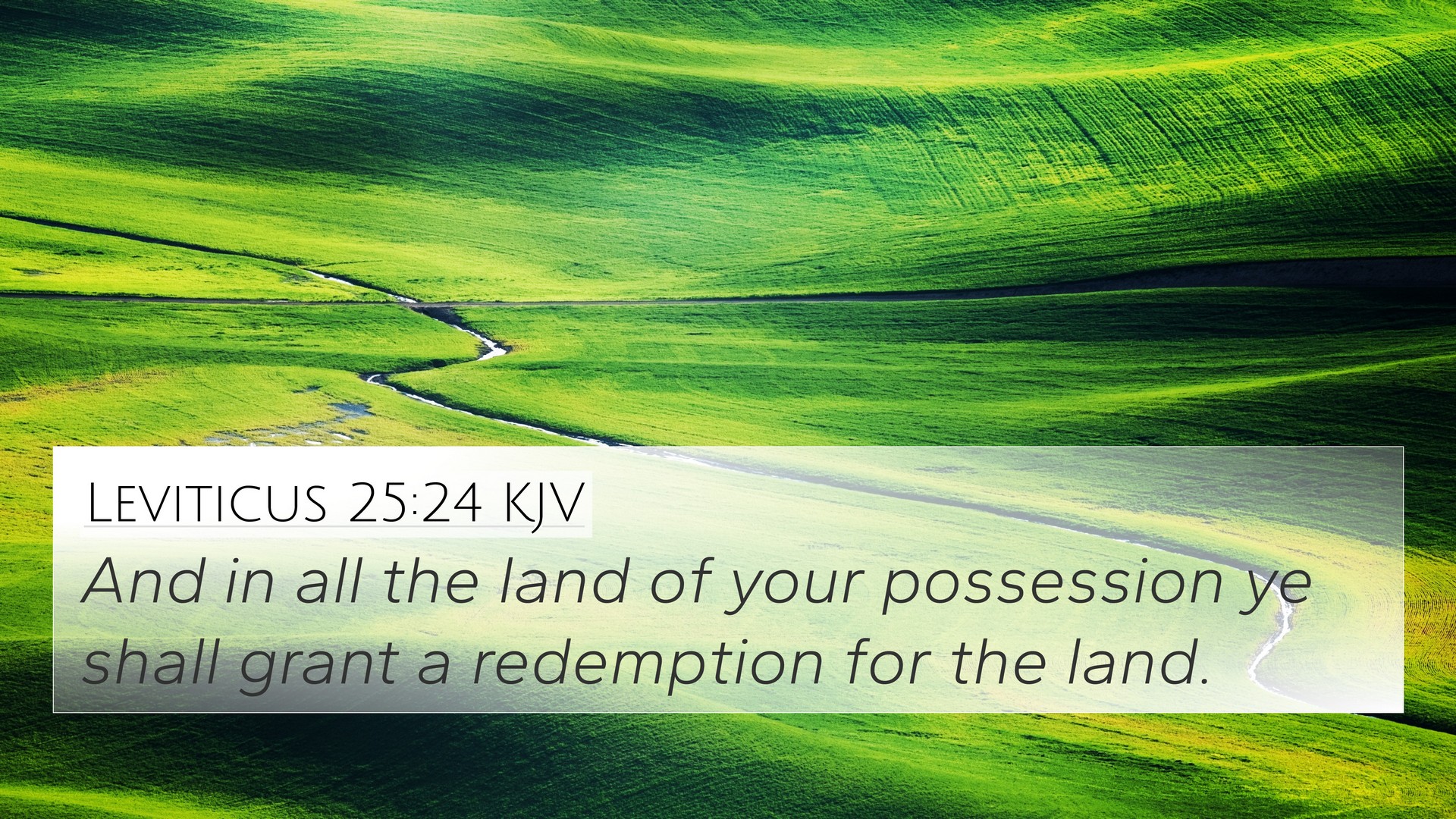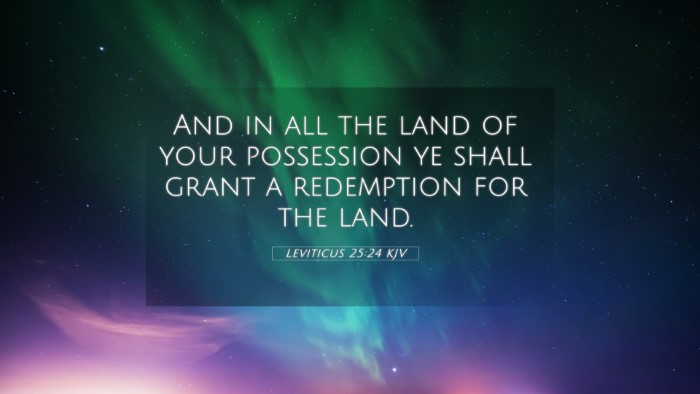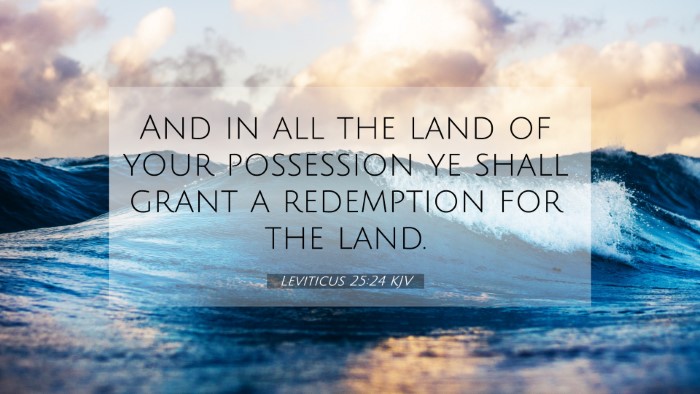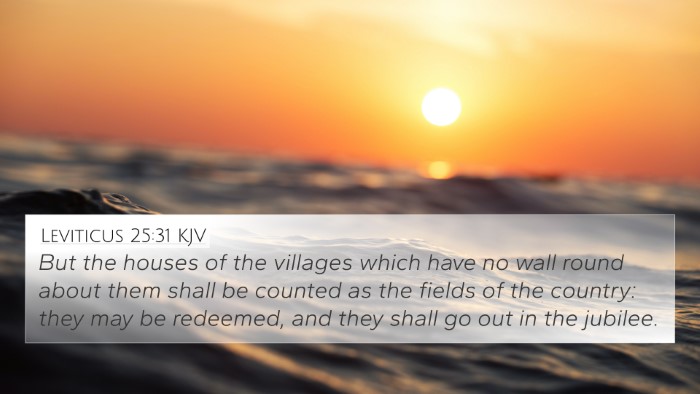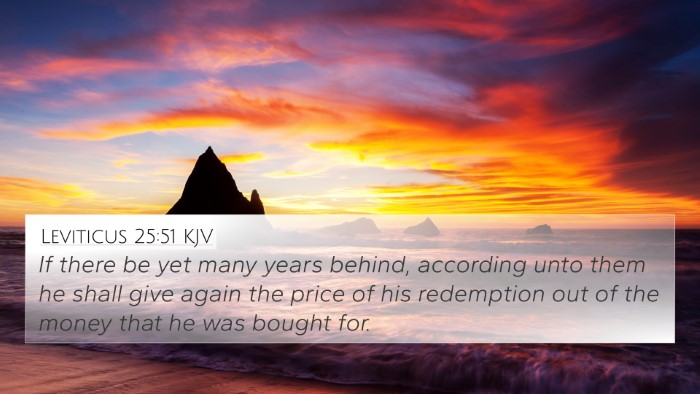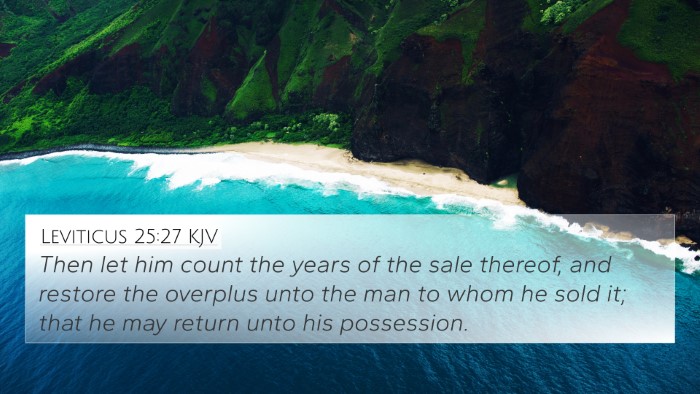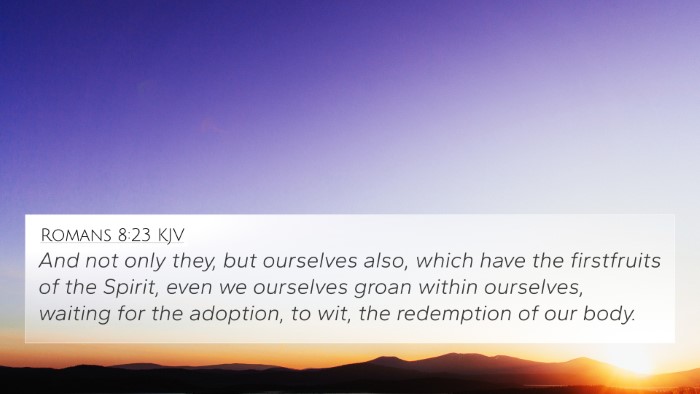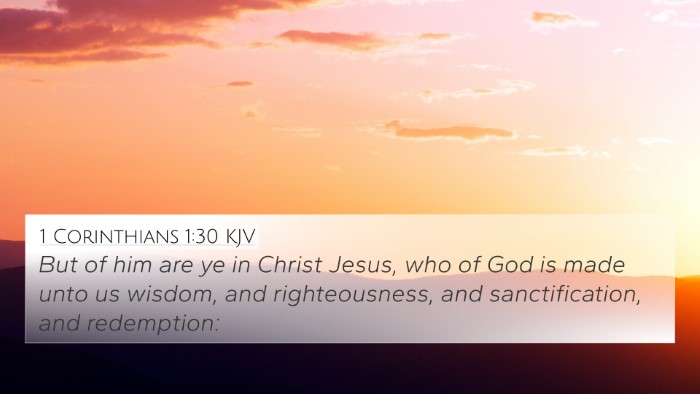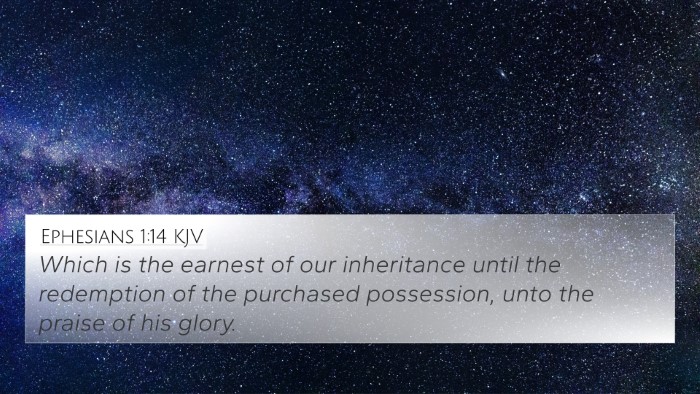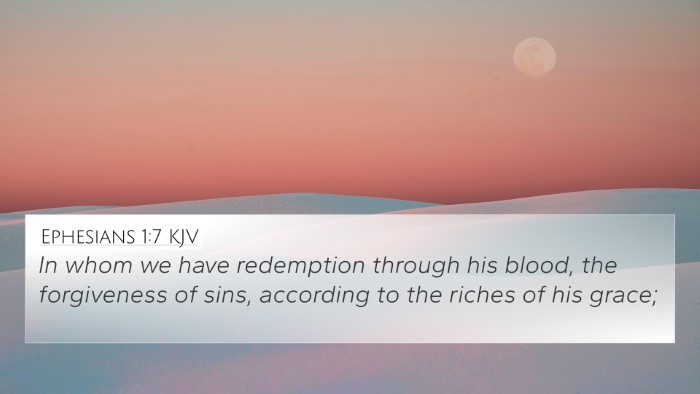Understanding Leviticus 25:24
Leviticus 25:24 states: "And in all your possessions you shall grant a redemption of the land." This verse emphasizes the importance of the redemption of land within the context of Israelite society and their covenant with God. In this summary, we will explore the meaning of the verse through insights from public domain commentaries by Matthew Henry, Albert Barnes, and Adam Clarke.
Verse Context and Meaning
This verse falls within the framework of the Jubilee regulations found in Leviticus 25, which outline God's intentions for restoring land and offering economic assistance to the poor. The concept of land redemption reflects the underlying belief in God's ownership of the land and the ethical responsibility of the Israelites to care for one another.
Matthew Henry's Commentary
According to Matthew Henry, this verse highlights that ownership of land was never absolute; rather, it remained under God's jurisdiction, emphasizing the necessity for the Israelites to offer a chance for redemption to those who lost their ancestral land. The regulations served to prevent permanent loss of property, thereby sustaining familial heritage and the social fabric of the community.
Albert Barnes' Commentary
Albert Barnes points out that the provision for land redemption signifies God's concern for justice and fairness within the community. It reinforces the moral obligation to assist those in need and maintain the economic stability of the tribes. He emphasizes that God’s laws were designed to alleviate poverty and prevent exploitation through debt bondage.
Adam Clarke's Commentary
Adam Clarke elaborates on the concept of redemption, relating it to the broader spiritual and theological implications. He notes that the right of redemption serves as a powerful symbol of hope and restoration. Clarke also connects the notion of redemption to the New Testament, where Christ is depicted as the ultimate Redeemer, providing salvation and reclaiming what was lost due to sin.
Connecting Themes in Scripture
Leviticus 25:24 serves as a critical reference point in understanding the broader themes of redemption and justice within the Bible. Below, we illustrate its connections with other scriptures that echo similar themes:
- Leviticus 25:28 - Discusses the conditions under which land could be redeemed, further elaborating on the jubilee regulations.
- Deuteronomy 15:1-2 - Reinforces the concept of debt forgiveness every seven years, illustrating God’s intent for socioeconomic balance.
- Isaiah 61:1 - References the proclamation of liberty, which resonates with the elaborations on redemption found in Leviticus.
- Luke 4:18 - Jesus quotes Isaiah, signifying His role in fulfilling the promise of redemption and liberation, akin to the principles laid out in Leviticus.
- Galatians 4:5 - Highlights Christ’s mission to redeem those under the Law, reinforcing the theme of redemption across the Testaments.
- Ephesians 1:7 - Discusses redemption through Christ's blood, linking spiritual redemption to the religious practices established in the Old Testament.
- Romans 8:21 - Speaks to the liberation of creation, echoing the idea of restoration found throughout the Bible.
Thematic Bible Verse Connections
When studying Leviticus 25:24, one can utilize tools for Bible cross-referencing to create a more comprehensive understanding of how these themes interconnect. The referencing system in the Scriptures highlights:
- The significance of land ownership and ethical stewardship.
- The cultural and theological understanding of the year of jubilee.
- Christ's role in fulfilling the laws and prophecies concerning redemption.
Cross-Referencing Biblical Texts
Engaging in a cross-reference Bible study can reveal layers of meaning associated with Leviticus 25:24. This methodology offers insights into not just what is written, but the implications it has on personal faith and collective community ethics. One can explore:
- The historical context of land redemption practices among the Israelites.
- The relationship between the Old and New Testaments regarding themes of liberty and redemption.
- Comparative studies of jubilee laws across different cultures reflected in biblical texts.
Conclusion
Leviticus 25:24 invites readers to reflect on the serious responsibility of stewardship and community within a divinely ordained system. It is through this lens that we can view connections between Bible verses, enriching our understanding of the Scriptures.
Practical Applications
For those seeking to deepen their study, it's beneficial to utilize a Bible concordance to find cross-references for specific themes or verses. This approach can enhance sermon preparation and personal exploration of biblical narratives.
